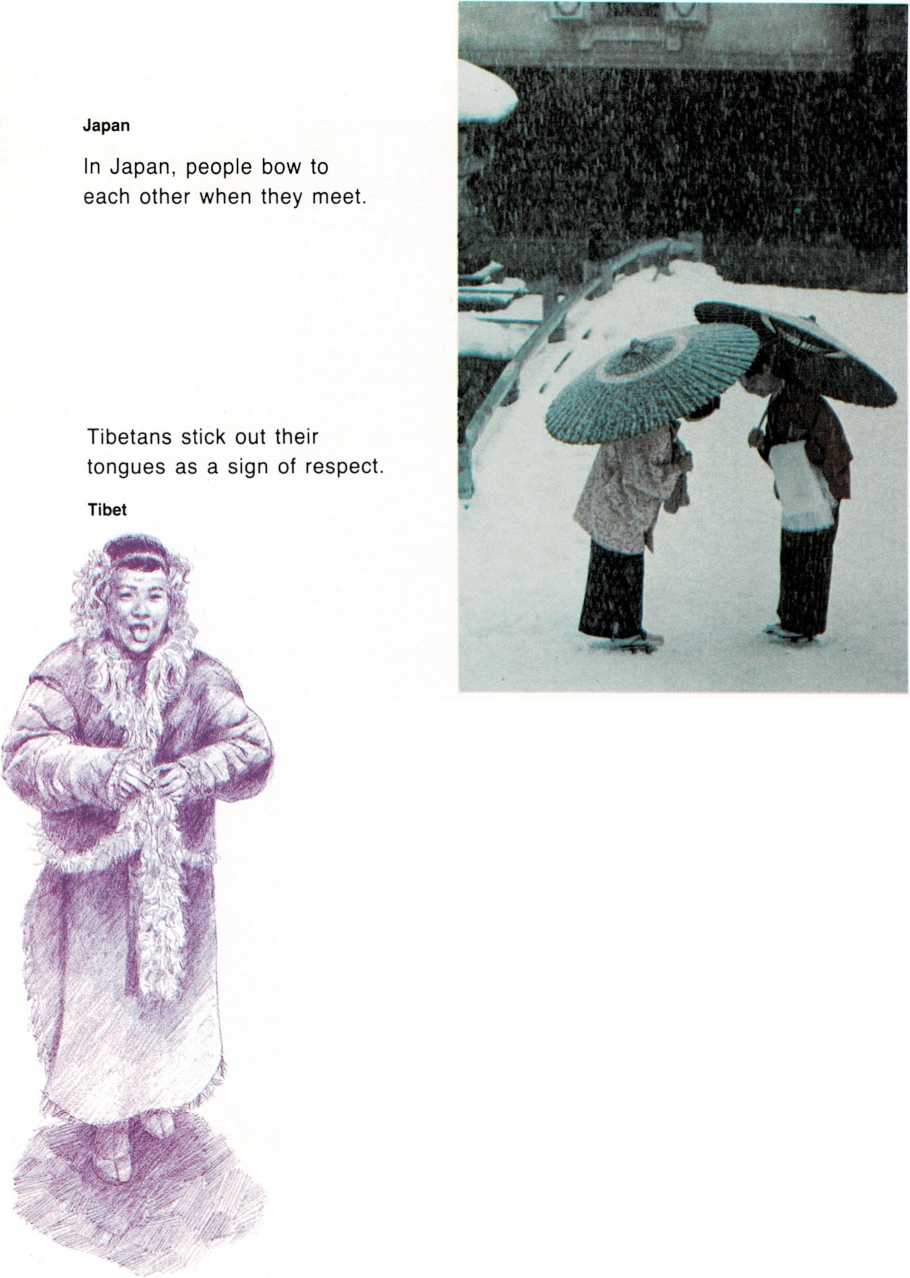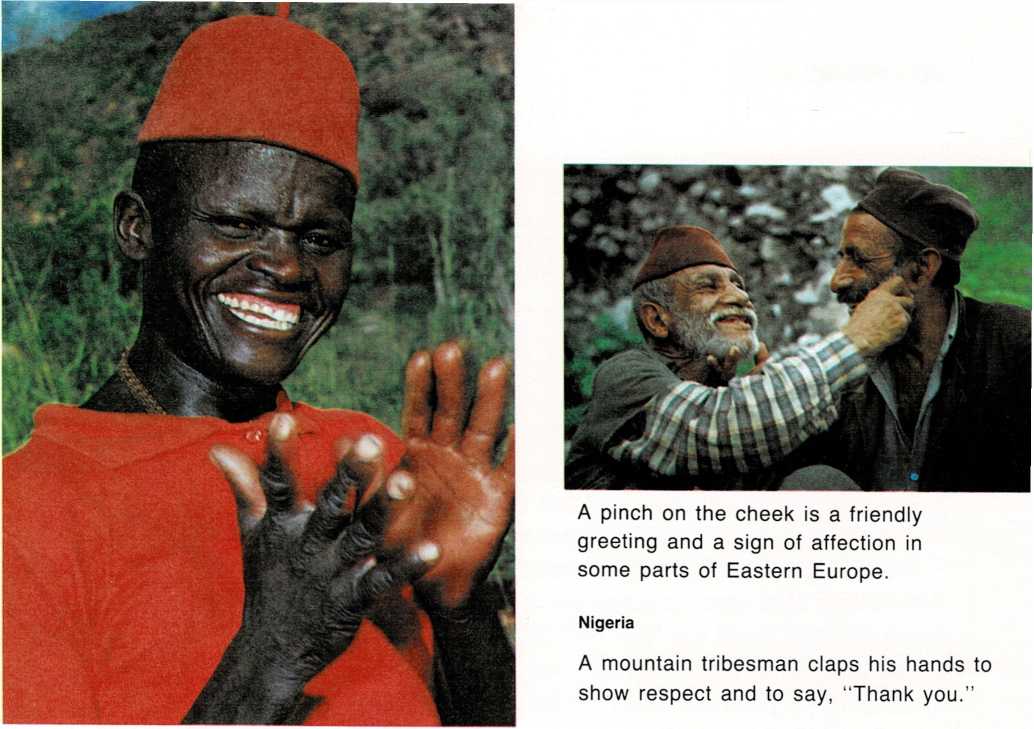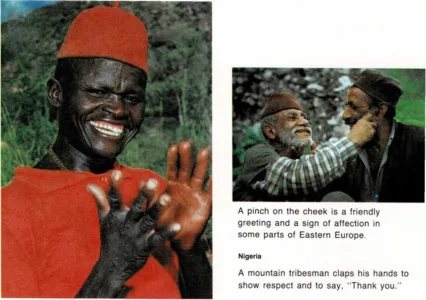
Actions speak louder than words
When a person in Tibet wants to say to someone, “I respect you,” he
sticks his tongue out!
When two people meet in Japan, they bow.
And when a man in some parts of Eastern Europe wants to say, “Hi, pal,”
to a friend, he pinches his friend’s cheek.
In Nigeria, people clap their hands when they meet someone they respect.
It means, “I am honored.” They also clap their hands when someone does
them a favor. It’s their way of saying, “Thanks.”
All over the world, people have ways of saying things without words.
After seeing a play, people in England and Russia clap their hands. They
are saying to the

actors, “Thank you. We liked your performance.” In England, the actors
bow to the audience to say, “Thank you.” But Russian actors clap. That’s
their way of saying, “Thank you for liking us.”
When Americans hold up one hand with the palm away from them and wave
their fingers up and down, they are saying “Good-by.” When Italians or
Peruvians do the opposite with them hands, they are saying the same
thing.
Sometimes a sound can mean something. In the United States, “shhh” means
“be quiet.” But in Germany, “shhh” means “hurry up.”

